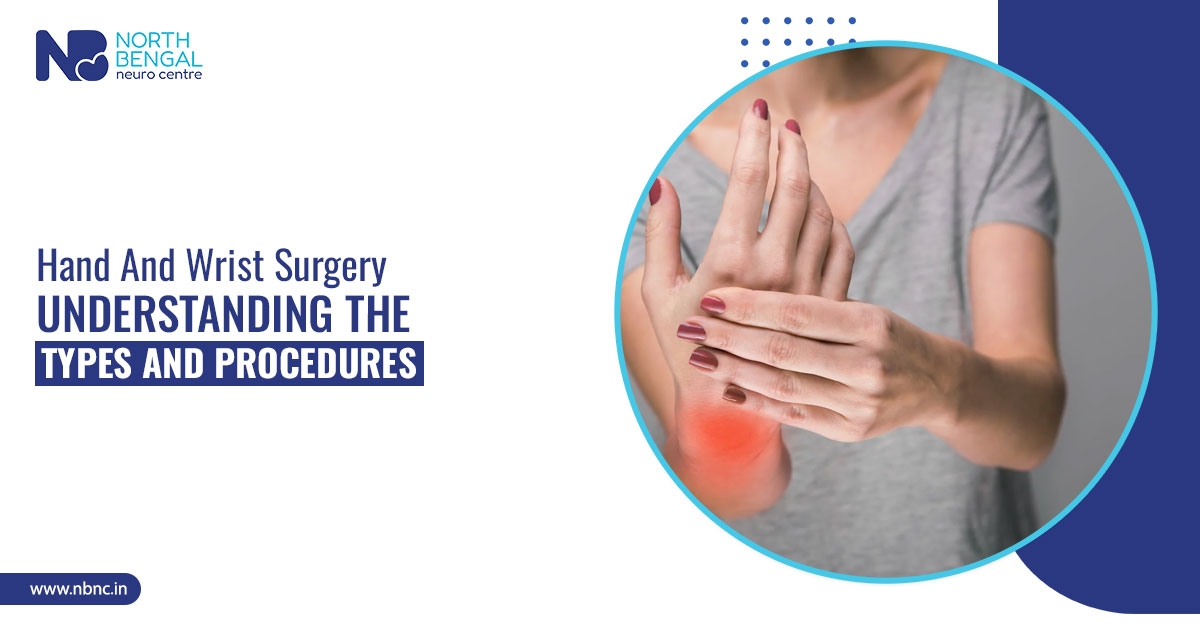Various electrical, structural, or chemical abnormalities in the nervous system can lead to the development of neurological disorders. These disorders mainly affect the functioning of your brain, nerves, or spinal cord. In some cases, neurological issues are temporary and don’t require continuous treatment. However, if the condition and its associated symptoms are serious then it requires emergency and ongoing treatment from an experienced neurologist in Siliguri at North Bengal Neuro Centre.
Our nervous system is responsible for various bodily functions and if the neurological issues are not controlled effectively then it may interfere with those functions. Family history and genetics play a major role in the development of these disorders. Herein, patients with serious and inherited neuro issues often experience difficulties in swallowing, movement, memory, learning, and speech.
Here Are Some Of The Common Neurological Disorders That Are Inherited
1. Parkinson’s Disease
Parkinson’s disease is an age-related and inherited degenerative brain issue. This condition can cause your brain functioning to deteriorate while affecting movement, muscle control, and balance. Herein, your mental health, senses, and thought process may also degrade due to this neurological issue. People who are above 60 years of age with a family history of the disorder have a higher chance of developing Parkinson’s disease.

Symptoms:
- Tremors or shaking of muscles
- Slowed movements
- Drooling
- Stiffness or rigidity
- Trouble swallowing
- Less frequency of blinking
- Unstable posture
- Soft voice for speaking
- Depression
- Sleeping issues
Before treating the condition, the doctor will recommend a thorough diagnosis with various imaging tests. These lab tests help in ruling out other conditions while understanding the staging of Parkinson’s disease. Some such diagnostic tests include genetic testing, CT scan, spinal tap, and MRI scan.
Treatments: Various effective medications can treat the distressing symptoms of this disorder. Another effective and latest treatment approach that can manage the condition is deep brain stimulation. This reversible technique is highly effective in controlling the brain areas which have been malfunctioning due to Parkinson’s disease. If the progression of this issue is not stopped, then it can gradually lead you towards dementia.
2. Epilepsy
Epilepsy or seizure disorder is a serious brain disorder that creates issues with the normal functioning of the nerve cells. This long-term neurological condition may lead you towards repeated seizures due to the abnormal electrical signalling of the brain cells. Herein, the sudden burst of electrical activity can be considered the main reason behind seizure episodes. Genetics play a major role in the development of this disorder, where the common seizure triggers can be fever, stress, sleeping issues, dehydration, and physical overexertion.

Symptoms:
- Numbness
- Temporary confusion
- Loss of consciousness
- Rapid heartbeat
- Anxiety or fear
- Blank stare
- Uncontrolled muscle movements
- Goosebumps
- Upset stomach
- Problems talking
To diagnose the condition, the doctor will ask you to give a detailed description of the experienced symptoms during the seizure episodes. Additionally, a thorough physical exam with medical tests can also be recommended. Brain scans and Electroencephalography (EEG) are the most effective tests that can help to evaluate any abnormal electrical patterns in the brain.
Treatments: It is pivotal to contact the best neurology doctor near you to reduce the attacks of epilepsy. Herein, the doctor may prescribe you anti-seizure medications to control seizures and its associated symptoms. If the medications are unable to stabilize your condition then surgery is an effective option.
3. Alzheimer’s Disease
Alzheimer’s disease is another inherited brain condition that can contribute to a progressive decline in organizing skills, memory, thinking abilities, and learning. If this condition reaches an advanced stage then it can cause dementia while making it extremely difficult to perform daily tasks. Similar to Parkinson’s disease, the symptoms of this disorder also start showing up among people above 65 years. There are also various stages of dementia where the symptoms may worsen over time.

Symptoms:
- Misplacing things
- Difficulty in expressing thoughts
- Problem-solving issues
- Confusion
- Short-term memory
- Personality changes
- Sleeping disturbances
- Increased vulnerability towards infections
- Unaware of the familiar surroundings
- Difficulty recognizing known people
Evaluating your overall health and identifying any changes in personality, mood, and behaviour can help in diagnosing Alzheimer’s. A neurological exam can also be performed to check the functioning of your nervous system affected by the disorder. Other imaging tests such as brain MRI and CT scan can be conducted to assess the condition.
Treatments: There are basically no available treatments for Alzheimer’s. However, contacting a doctor will help you to get prescribed medications that can slow down the progression of the disorder. Beginning treatment at an early stage will also help you sustain body functioning to perform daily activities without any ease.
4. Dyslexia
Inherited neurological disorders also can develop learning disabilities. One such disorder associated with family history is dyslexia where the patients may feel it harder to perform language-related activities. Dyslexia is basically an umbrella term that involves various subtypes of the disorder such as dyscalculia and dysgraphia. In some cases, other genetic disorders such as Down syndrome can also increase the likelihood of getting affected by dyslexia. Due to this issue, you may have certain disruptions in brain functioning and development.

Symptoms:
- Trouble rhyming
- Difficulty in spelling simple words
- Trouble learning
- Trouble knowing new words
- Problems differentiating words with similar shapes
- Mixing up sound positioning
You must know that no lab screenings or blood tests can detect dyslexia. This disorder can only be successfully detected by a neurologist in Siliguri with careful evaluation of symptoms. The testing of this disorder will look for spelling, decoding, word recognition, and vocabulary issues.
Treatments: Dyslexia is a highly treatable neurological disorder since with proper treatment the symptoms of this disorder don’t interfere with your daily tasks. However, medications are still not available to treat this condition but various educational interventions are available that can help you learn effective ways to read and learn.
5. Amyotrophic Lateral Sclerosis
Amyotrophic Lateral Sclerosis (ALS) or Lou Gehrig’s disease is one of the most progressive neuromuscular disorders associated with genetics. This disorder mainly affects your spinal cord and brain while leading to the development of loss of muscle control. The muscle weakness caused due to ALS can make it difficult to control voluntary movements such as moving the legs, chewing, and talking. In some cases, this disorder can also lead to serious pulmonary issues such as repeated chest infections, breathing issues, extra saliva, and respiratory failure.

Symptoms:
- Weakness
- Muscle cramps
- Fatigue
- Depression
- Weight loss
- Difficulty in moving legs and arms
- Inability to walk or stand independently
- Difficulty breathing
Many available tests can help the doctor confirm the diagnosis of ALS. Some such tests include nerve conduction study, blood tests, MRI, electromyogram, and a detailed neurological examination. In some cases, a nerve biopsy or spinal fluid test can also be conducted to evaluate the symptoms.
Comments (0)





